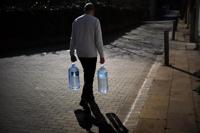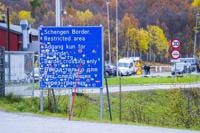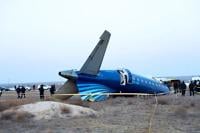BARCELONA, Spain (AP) — Spain’s drought-stricken northeastern Catalonia is considering imposing water restrictions on tourists in the driest parts of the region if domestic consumption is not curtailed, the Catalan government said Tuesday.
The restriction of 100 liters (26 gallons) per tourist per day for hotels would go into effect if a municipality fails to keep domestic water use by residents below established limits for three consecutive months under the current “drought emergency” for Catalonia, officials said.
Barcelona, Spain’s second largest city and the regional capital, uses 160 liters of water per resident per day — well below the current limit of 200 liters, Catalonia's water agency said. That includes uses by residents for both washing and drinking.
Tourism represents nearly 12% of Spain’s economy. But there has been growing pressure by water conservationist groups to limit the use of water by tourists during the drought.
According to Barcelona’s hotel guild, the average tourist to Barcelona in 2022 used some 163 liters per day, while the figure rose to over 240 liters for luxury hotels.
The limits for tourists would not include the water used to fill swimming pools.
Also Tuesday, the Catalan government loosened restrictions that prohibited the filling of swimming pools with fresh water. Under the new measure, a privately-owned swimming pool can be refilled in a severe drought if authorities declare it a “climate refuge” open to residents seeking relief from the heat.
The regional government also made modifications to its drought restrictions to allow for the private use of desalination installations, a move hotel owners have demanded.
Catalonia has borne the brunt of a drought driven by climate change that has also impacted parts of southern Spain, though . The reservoirs for Barcelona and surrounding areas that were at 15% of their capacity are now 18% full.
Even so, Catalonia has kept in place its restrictions under a to combat a drought regional authorities call historic. Those limitations include reducing average water use by 80% for crop irrigation, 50% for herd animals and 25% for industry.
___
Read more of AP’s climate coverage at








































